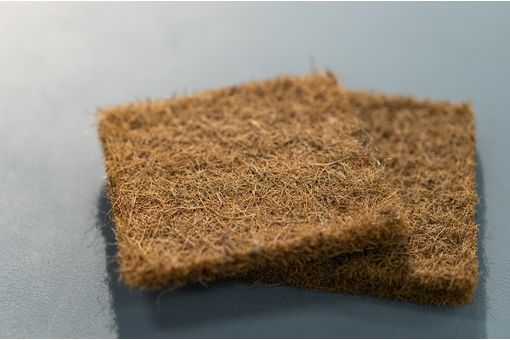Interviews
Silk weavers profits decline with rising raw material costs
08 May '10
2 min read
With the increase in raw silk prices by 37 percent within the last one year, profits that supported Cambodia's silk weavers are slowly dipping, said members of Khmer Silk Village Association (KSVA).
As per Secretary General, KSVA, Kae Muny, currently the cost of silk is US $37,000 per ton as compared to $27,000 the same period last year.
Muny continued, the increase in prices of silk this year is most likely due to weather change and also that most of the mulberry farmers who earlier produced silk have now started growing other higher-income crops.
Almost all the silk goods in Cambodia are woven from thread purchased from other Asian countries. Approximately 20,000 silk weavers working within the country consume 300 – 400 tons of silk and weave it to create products such as sampots (sarongs), scarves and bags, which are then delivered to the domestic and international markets each year.
While Cambodia manufactures about 4 tons of silk annually, from plantations in Banteay, Meanchey and Siem Reap, it is anticipated that, approximately 95 percent of the raw silk, required to support manufacturing is procured from Vietnam and the remaining is bought from China.
However, increasing costs of manufacturing has failed to impact the costs of finished goods, which has not kept pace with the rise in raw material costs, said Te Taing Por, Co-President, Small and Medium Enterprises and Factories Working Group.
Owing to stable prices of finished goods, Cambodian weavers are losing lot of money as, despite increase of raw silk cost, the cost of finished products has remained the same, continued Por.
In response to the private player's pleas and to help keep alive the country's silk community, on April 27, at the Government-Private Sector Forum, Prime Minister, Hun Sen, announced deferral of the seven percent tax on silk imports and also of the ten percent Value Added Tax (VAT).
According to KSVA, since Cambodia's overseas sales of silk finished goods account for nearly 30 percent, KSVA President and Prince Sisowath Pheanuroth said that, removal of taxes is a positive step towards helping the silk sector investors continue with their manufacturing and sales of finished silk goods at low prices.
More over, Cambodia should encourage more number of mulberry plantations so as to produce silk in bulk quantities that will in turn help face future rise in silk prices.
As per Secretary General, KSVA, Kae Muny, currently the cost of silk is US $37,000 per ton as compared to $27,000 the same period last year.
Muny continued, the increase in prices of silk this year is most likely due to weather change and also that most of the mulberry farmers who earlier produced silk have now started growing other higher-income crops.
Almost all the silk goods in Cambodia are woven from thread purchased from other Asian countries. Approximately 20,000 silk weavers working within the country consume 300 – 400 tons of silk and weave it to create products such as sampots (sarongs), scarves and bags, which are then delivered to the domestic and international markets each year.
While Cambodia manufactures about 4 tons of silk annually, from plantations in Banteay, Meanchey and Siem Reap, it is anticipated that, approximately 95 percent of the raw silk, required to support manufacturing is procured from Vietnam and the remaining is bought from China.
However, increasing costs of manufacturing has failed to impact the costs of finished goods, which has not kept pace with the rise in raw material costs, said Te Taing Por, Co-President, Small and Medium Enterprises and Factories Working Group.
Owing to stable prices of finished goods, Cambodian weavers are losing lot of money as, despite increase of raw silk cost, the cost of finished products has remained the same, continued Por.
In response to the private player's pleas and to help keep alive the country's silk community, on April 27, at the Government-Private Sector Forum, Prime Minister, Hun Sen, announced deferral of the seven percent tax on silk imports and also of the ten percent Value Added Tax (VAT).
According to KSVA, since Cambodia's overseas sales of silk finished goods account for nearly 30 percent, KSVA President and Prince Sisowath Pheanuroth said that, removal of taxes is a positive step towards helping the silk sector investors continue with their manufacturing and sales of finished silk goods at low prices.
More over, Cambodia should encourage more number of mulberry plantations so as to produce silk in bulk quantities that will in turn help face future rise in silk prices.
Fibre2Fashion News Desk - India
Popular News
Leave your Comments
Editor’s Pick
































-Ltd..jpg?tr=w-120,h-60,c-at_max,cm-pad_resize,bg-ffffff)





.jpg?tr=w-120,h-60,c-at_max,cm-pad_resize,bg-ffffff)
.jpg?tr=w-120,h-60,c-at_max,cm-pad_resize,bg-ffffff)






